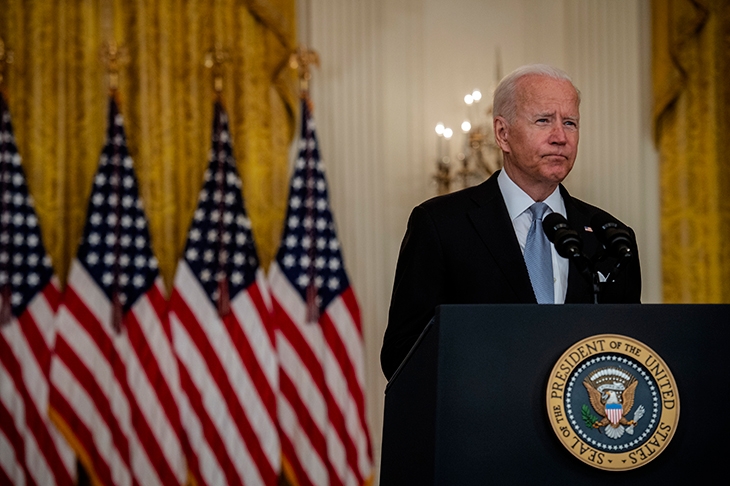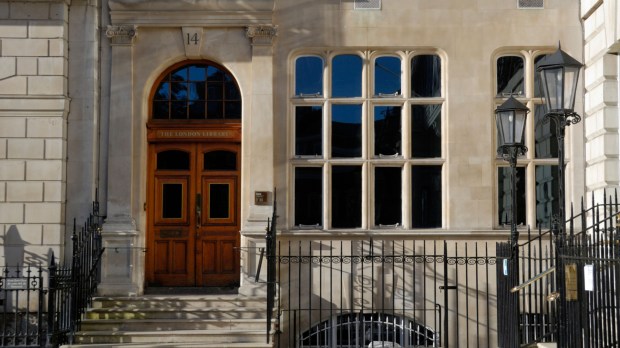Q. Is a Taliban takeover of Afghanistan now inevitable?
The President: No, it is not.
Q. Why?
The President: Because you — the Afghan troops have 300,000 well-equipped — as well-equipped as any army in the world — and an air force against something like 75,000 Taliban. It is not inevitable…
Q. Do you trust handing over the country to the Taliban?
The President: No, I do not trust the Taliban.
Q. So why are you handing the country over…?
The President: It’s a — it’s a silly question. Do I trust the Taliban? No. But I trust the capacity of the Afghan military, who is better trained, better equipped, and more re — more competent in terms of conducting war.
I take those verbatim words from the White House transcript of Joe Biden’s press conference following his statement there on 9 August. On 16 August, the President made another statement about the situation in Afghanistan, which was developing not so well. In it, Biden blamed the Afghans. The ‘political leaders gave up and fled the country,’ he said, ‘The Afghan military collapsed, sometimes without trying to fight… American troops cannot and should not be fighting in a war and dying in a war that Afghan forces are not willing to fight for themselves.’ In the same speech, the President boasted that ‘We’ve developed counterterrorism over-the-horizon capability’ to see trouble coming; yet the administration had not been able to look over the horizon of one week.
President Biden would not be alone in considering the Afghan government (now deceased) as weak and the army as reluctant to fight, but he does not ask himself why they were. (Indeed, he cannot really do so, having declared, a week earlier, that the army was great.) Politics and military affairs, like stock markets, depend on what people think about the future. If a government knows that its main source of foreign backing has publicly set a date (11 September!) by which it will withdraw, its future looks black. A fortiori, if troops think their government is on the slide and the enemy is about to take over, their morale will collapse and they will not fight. Why should they end up either dead or imprisoned for a lost cause? American troops did not leave because the Afghans were giving up: the Afghans gave up because the Americans were leaving. It is shabby of Biden to blame his own clear mishandling of the situation on the people who had become his country’s clients. Even to nations much stronger than Afghanistan — notably the Nato allies or South Korea — the Kabul scuttle sends a frightening warning.
Opponents of the attempt by Jesus College, Cambridge, to remove the Grinling Gibbons bust of its great benefactor, Tobias Rustat, because of his connection with slavery, have won a small victory. They noticed that, before Jesus embarked on its quest for a legal ‘faculty’ from the Diocese of Ely for the historic monument’s removal [first mentioned, Notes, 14 November 2020], its Master informed alumni that the college had talked to the diocese. Its Chancellor (chief ecclesiastical lawyer) Anthony Leonard QC had visited the college last July. ‘The Church is very supportive of our considerations,’ reported the Master. The opponents of Jesus’s petition for removal produced evidence to argue that the Chancellor should recuse himself from the case because it looked as if he were favouring Jesus. In a long recusal ruling, Judge Leonard has denied this, but recused himself all the same, on the grounds that there is an ‘identifiable risk’ that his visit to the college ‘will continue to be thought to be relevant to the proceedings’. The case will now be heard by his deputy. Actually, I think the visit is relevant – not because of any unprofessional bias on Judge Leonard’s part, but because it may explain Jesus College’s stubbornness in refusing to resolve the issue through Alternative Dispute Resolution (ADR). Charity Commission guidance encourages charities to accept ADR rather than waste money in court, but Jesus has disdained such a course. Presumably, after the Chancellor’s visit, it convinced itself it would win whatever happened.
My WhatsApp buzzed a message from an American number: ‘Hey, Paul, is London’s current house price suitable for investment?’ Not being called Paul, I replied, without giving my name, ‘This must have been sent to me in error.’ ‘Sorry,’ said the polite reply, ‘I didn’t pay attention to your avatar when I added it. I think I added the wrong number, I hope I didn’t bother you.’ I replied, ‘Fine.’ At this point, one would expect the conversation to end. But then came another message: ‘I’m Annabel.’ This gave me pause. It is not possible for a public-school boy of my generation to have got through life without knowing several women called Annabel. Might I be curtly dismissing an old acquaintance if I did not reply? Havering, I magnified Annabel’s head-shot beside her message to find out if I knew her. It disclosed a woman in a swimming costume leaning back in the stern of a speedboat and displaying very long, bronzed legs and a face rendered unidentifiable by its angle and by dark glasses. I decided it would be better to leave ‘Annabel’ unanswered.
My wife had gone to great efforts, as churchwarden in our village, to get a top-quality visiting choir for a special evensong last Sunday to mark our parish church’s patronal festival (in what must be almost unique for the C of E, the church is dedicated to the Assumption of Blessed Mary). At dawn, however, the news came through that, with one exception, the entire choir had just been pinged. The exception, a brave tenor, came and did his best, which was very good, but the pointlessness of pingdom was forcefully brought home to us. ‘The day Thou gavest, Lord, is ended,’ we sang with some ardour, knowing that the next morning, the rules would at last change.
Got something to add? Join the discussion and comment below.
Get 10 issues for just $10
Subscribe to The Spectator Australia today for the next 10 magazine issues, plus full online access, for just $10.
You might disagree with half of it, but you’ll enjoy reading all of it. Try your first month for free, then just $2 a week for the remainder of your first year.















Comments
Don't miss out
Join the conversation with other Spectator Australia readers. Subscribe to leave a comment.
SUBSCRIBEAlready a subscriber? Log in